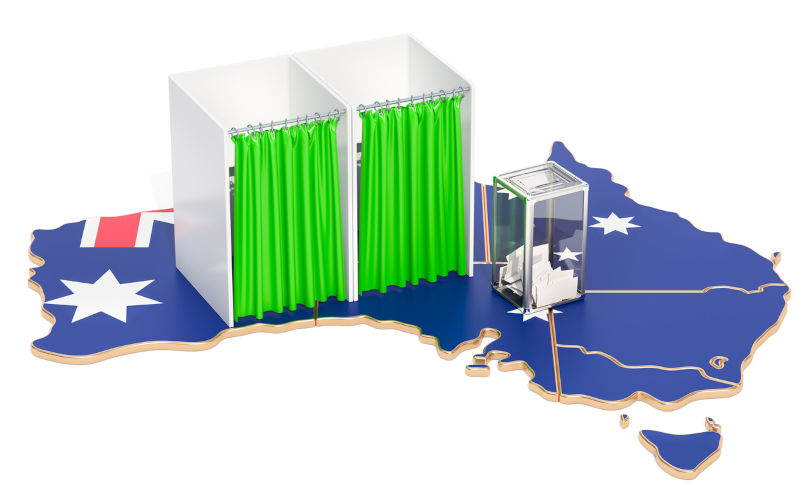“Donfather’s Bill’ is now law – a killer blow for Climate 200 and Community Independents, delivered on the 11th hour through an unholy alliance of the two mafia-like bosses, Albanese and Dutton. Will Simon Holmes a Court seize his Mandela Moment and remake our Parliamentary democracy to fit for purpose?
In 1961 Nelson Mandela convinced the ANC leaders that their decades of non-violent protests had achieved little, and that it was time to fight force with force. Thus was born the military arm of the ANC. Its guerilla tactics to bomb critical infrastructure underpinning white power provided great media coverage in the West and hastened the day of free elections for the blacks.
Mandela was an admirer of Gandhi. He continuously advocated “civil disobedience and peaceful protests.” He was a lawyer, and had probably been sold on the notion of protest within the rule of law.
But the Sharpeville massacre in 1960, the previous year, might have been Mandela’s Damascus moment. The white police shot at the 4000 unarmed black protesters, with hospital physicians later testifying that at least 70% of the victims were shot in the back, including many women and children. Photos of 69 blacks lying dead on the dirt, splashed across the globe. Universal outrage followed.
Thankfully our days of massacring our blacks were some decades before that. But we still kill people without shedding blood: Donfather’s Act; Robodebt; death in custody.
On this front, Don Farrell is consummate.
His Electoral Reform Bill does limit the temptations of big and dark monies, but also drastically reinforces the power and privilege of the two old parties, while at the same time putting a noose around the necks of the upstarts, the Teals and Community Independents, through a new Act crafted by the winners and connivers of our two party-preferred electoral system.
“Donfather’s bill” is a reform bill, albeit limited in scope, but it is also the authority-to-kill fig-leaf. A little like the modus operandi of the white police station in Sharpeville – uphold peace and order, and shoot to kill.
The Teals and Community Indies are the non-violent protesters, agitating for new standards of governance. This is an affront to the two old mafia-like fiefdoms, already feeling the abandonment of disenchanted voters.
This is an existential moment for Climate 200, and for the two old parties, for entirely different reasons.
Climate change is global, democracy is local.
We can only do the right thing towards addressing this global crisis, if we have a functional democracy in our Parliament.
Yet when the chips are down, our Parliament is about which side has the numbers to gain whatever is good for the reigning clique and their supporters.
We need to fix this rotting foundation of our Parliamentary democracy.
That would mean a fundamental shift towards democratic representation, and the derogation of the inordinate dominance of the two old parties (toPs).
But now that the toPs have ganged up, the 2025 elections will be the last opportunity for Climate 200 to rise to its Mandela Moment.
Transform our polity, or face the infamy of sticking to the sanctity of non-partisanship and achieving little to root out the cause of our climate policy quagmire.
Mandela gave up the sanctity of non-violence, after decades of little effective progress.
Will Climate 200 be precocious?
Incite the people to end the duopoly through the ballot box. Mandela’s guerilla attacks on infrastructure gave the blacks a new sense of hope, and universal if indirect support for their cause from the West. Think of Malcolm Fraser’s refusal to permit landing rights to refuel the plane that took the all-white Springboks to Kiwiland.
Climate 200 should do similarly, by focusing on the real cause of our failure to do our best in environmental policies, the winning-is-everything mentality of the toPs.
The campaign should be based on why we need Proportional Representation, now that the toPs have stitched up a deal to strangle the Teals and Indies and make Parliament even more unrepresentative for the 2028 elections.
The coming elections, unaffected by the new law, will be a Waterloo moment in our history.
Proportional Representation would improve the integrity of policy deliberations in our Lower House, and in due course the quality of MPs. The Teals and Indies have given us a foretaste.
However, even under PR, the toPs can still gang up in the Senate to frustrate any legislation from the Lower House. Therefore, we need to bolster the Senate against such an outcome.
Thankfully, in 2016 Prime Minister Malcolm Turnbull reformed the voting system for the Senate, facing down a protracted attack from Labor, with a user-friendly and error accommodating procedure for voting Below The Line (BTL).
So far, the take-up of this BTL option is only 7% in 2022. Aye, old habits side hard. Either that, or the old tortuous experience of numbering each candidate on a metre-long ballot paper, with no accommodation for error, has caused a permanent scar.
The challenge is to inspire and incite voters to hitch on to the exponential curve of the product cycle of BTL.
It can be done.
In 2016, Senator Lisa Singh made history. Labor had relegated her to the 6th position on its Senate ticket (above the line), an unwinnable position. A Vote BTL campaign got her elected, with more BTL personal votes than all her other five colleagues on the ticket put together! It was a double dissolution election which make the quota for election much lower. But there is no reason why significantly increased BTL votes could not do the same for future independent candidates. The “Best leader that Labor did not get”, Senator David Pocock, is a beacon for what is possible.
The campaign therefore should focus on bringing structural integrity to the Lower House through PR, and incite voters to exercise their democratic rights, through the BTL provision, to vote for Senate candidates they prefer and not the ones their Party bosses had ordained. Success breeds success. In time, there will be more independent Senators, and fewer sinecures held by Party-incubated chatbots.
In a somewhat theatrical sense, bringing structural integrity to the Lower House is like ending the sanctity of white supremacy in the South African parliament, and the incitement to Vote BTL is akin to demanding free votes for the blacks. It took Mandela 33 years from his Damascus moment to achieve his vision.
We can do better, for the times are with us.
The 2PP electoral system was devised when there were only two parties, so that certainty of “the mandate” to govern was guaranteed.
The fig-leaf that covers the unmentionable part of Labor’s electoral reform bill should remind us of the “original sin” of the 2PP.
Will Climate 200 see the elephant in the dark?
Mandela is gone. His legacy remains a beacon for courageously doing what needs to be done, in a well-considered, unwavering, but most of all an upright way.
Thankfully, we have the political stability and the social ambience for this iconoclastic endeavour to succeed. The younger generations have all but their bats ready.
Socially, historically, this proposal has a much greater chance than the Voice campaign which was turned into a battle for preserving white privilege. This PR + VBTL campaign, should awaken jaded voters to their birthright to democratic representation.
It will hopefully yield a much larger contingent of Teals and Indies, to demand PR as the first condition for a minority government, red or blue. That should set the parliamentary environment for unpicking the electoral bill just rammed through. When that happens, our polity will be permanently blessed by a civilised, compassionate, and indomitable spirit.
Just imagine: had Morrison been beholden to the Greens as he would have under PR, Robodebt would not have been launched, or at worst would have been cancelled at the first sign of its malfeasance.
Will Climate 200 rise to our Mandela Moment, before the unprecedented tide that washed away Scott Morrison’s accumulated unloveliness goes out?
Chek Ling arrived in Melbourne in 1962, on a Colombo Plan scholarship, to study electrical engineering. He never left. He has been an activist in the Chinese community since 1984. In 1988 he was spokesperson for the Queensland Chinese Forum to denounce the State Liberal Party. He is the author of Plantings in a New Land, an oral history of the Chinese in Queensland, published in 2001 under the auspices of Centenary of Federation Queensland.

